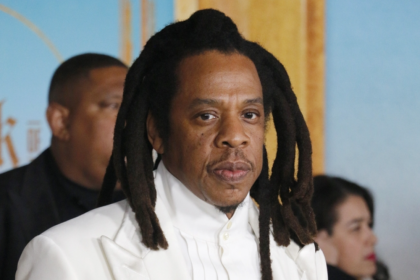
While
the calls for blood and revenge drowned out the sounds of reason,
recently elected South African President Nelson Mandela, played by
Morgan Freeman, appealed to his black countrymen’s sense of
humanity to heal and repair instead of starting a massacre against
whites. In director Clint Eastwood’s Invictus, which means
“unconquerable,” Freeman’s Mandela convincingly implored his
fellow black South Africans to purge themselves of their
understandable yet but counterproductive hatred of their white
countrymen in order to pull the country out of its ugly apartheid
past and into a fruitful future.
In Invictus, we are ushered into the impossibly cramped, solitary
imprisoned life that fueled a modern hero’s campaign to engineer a
country’s transformation. Mandela spent a quarter of a century in
prison studying the white Afrikaners’ obsession with their national
pastime, rugby, and knew he could leverage the universal language of
sports to foster real racial reconciliation. Even after personal
emancipation, Freeman’s Mandela remained a lonely figure whose
relentless, single-minded pursuit of the country’s cultural
metamorphosis galvanized a nation.

In
the USA, Jackie Robinson’s integration of baseball is credited as a
social ingredient that stirred the Civil Rights Movement. In the
other USA — the Union of South Africa — Matt Damon’s spot-on
portrayal of rugby captain Francois Pienaar helped Mandela manifest
that dream. The rugby team made an inspiring and unlikely run to the
1995 World Cup championship match. And for a brief moment, the
country forgot its tormented past of racial animus. And it
illustrated, as Mandela had envisioned, that the two ethnicities
could and had to work together to heal themselves, each other and the
nation.
The film, which was shot on location, creeps along slowly in the
beginning —
but Morgan’s uncanny portrayal of
the Nobel Prize-winning saves it from becoming a snooze-fest. The
movie provides outsiders with an engrossing glimpse into the
fractious nation of impoverished blacks and prosperous whites, filled
with fear and distrust of the other, subjugating their prejudices to
grudgingly, then willingly, reach across the gaping chasm to pull
each other from inevitable doom. Winnie Mandela’s conspicuous
omission from the film was startling, though the Mandelas’ daughter
was featured briefly. And Mandela’s life was never explored fully;
instead the film effectively pulled a snapshot of Mandela’s early
presidency and showed how sports and politics can intersect to help
facilitate and hasten healing.
–terry
shropshire










